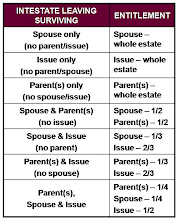Johnny Cash (born J. R. Cash; February 26, 1932 – September 12, 2003) was an American singer-songwriter and one of the most influential musicians of the 20th century. Primarily a country music artist, his songs and sound spanned many other genres including rockabilly and rock and roll (especially early in his career), as well as blues, folk and gospel. Johnny Cash was of Scottish royal descent but he learned this only upon researching his ancestry. After a chance meeting with former Falkland laird, Major Michael Crichton-Stuart, he traced the Cash family tree to 11th century Fife, Scotland. Scotland's Cash Loch bears the name of his family.
Cash was known for his deep, distinctive bass-baritone voice, the "chicka-boom" freight train sound of his Tennessee Three backing band, his demeanor, and his dark clothing, which earned him the nickname "The Man in Black". He traditionally started his concerts with the introduction "Hello, I'm Johnny Cash".
His first recordings at Sun, "Hey Porter" and "Cry Cry Cry", were released in 1955 and met with reasonable success on the country hit parade.
He had believed in his younger days that he was mainly Irish and partially Native American (he had been told he was one-quarter Cherokee). Even after learning he had no Native American ancestry, Cash's empathy and compassion for Native Americans was unabated. These feelings were expressed in several of his songs, including "Apache Tears" and "The Ballad of Ira Hayes", and on his album, Bitter Tears.
Cash's next record, "Folsom Prison Blues", made the country Top 5, and "I Walk the Line" became No. 1 on the country charts and entered the pop charts Top 20. Following "I Walk the Line" was "Home of the Blues", recorded in July 1957. That same year Cash became the first Sun artist to release a long-playing album. Although he was Sun's most consistently best-selling and prolific artist at that time, Cash felt constrained by his contract with the small label.
Although in many ways spiraling out of control, Cash's frenetic creativity was still delivering hits. His rendition of "Ring of Fire" was a crossover hit, reaching No. 1 on the country charts and entering the Top 20 on the pop charts. The song was written by June Carter and Merle Kilgore. The song was originally performed by Carter's sister, but the signature mariachi-style horn arrangement was provided by Cash, who said that it had come to him in a dream.
In 1980, Cash became the Country Music Hall of Fame's youngest living inductee at age forty-eight, but during the 1980s his records failed to make a major impact on the country charts, although he continued to tour successfully.
The Folsom Prison record was introduced by a rendition of his classic "Folsom Prison Blues", while the San Quentin record included the crossover hit single "A Boy Named Sue", a Shel Silverstein-penned novelty song that reached No. 1 on the country charts and No. 2 on the U.S. Top Ten pop charts. The AM versions of the latter contained a couple of profanities which were edited out. The modern CD versions are unedited and uncensored and thus also longer than the original vinyl albums, though they still retain the audience reaction overdubs of the originals.
In 1997, Cash was diagnosed with the neurodegenerative disease Shy-Drager syndrome. The diagnosis was later altered to autonomic neuropathy associated with diabetes. This illness forced Cash to curtail his touring. He was hospitalized in 1998 with severe pneumonia, which damaged his lungs. In 1999, Cash received the Grammy Lifetime Achievement Award. In 2004, Rolling Stone Magazine ranked Johnny Cash #31 on their list of the 100 Greatest Artists of All Time.
In a tribute to Cash after his death, country music singer Gary Allan included the song "Nickajack Cave (Johnny Cash's Redemption)" on his 2005 album entitled Tough All Over. The song chronicles Cash hitting rock bottom and subsequently resurrecting his life and career. The main street in Hendersonville, Tennessee, Highway 31E, is known as "Johnny Cash Parkway". The Johnny Cash Museum is located in Woodmere, NY on Felter Avenue. The owner of the museum is currently attempting to get the street renamed in honor of Johnny Cash.
On November 2–4, 2007 the Johnny Cash Flower Pickin' Festival was held in Starkville, Mississippi, where Cash was arrested over 40 years earlier and held overnight at the city jail on May 11, 1965 for trespassing late at night onto private property to pick flowers. It inspired Cash to write the song "Starkville City Jail". The festival, where he was offered a symbolic posthumous pardon, honored Cash's life and music, and was expected to become an annual event. [wikipedia]












No comments:
Post a Comment